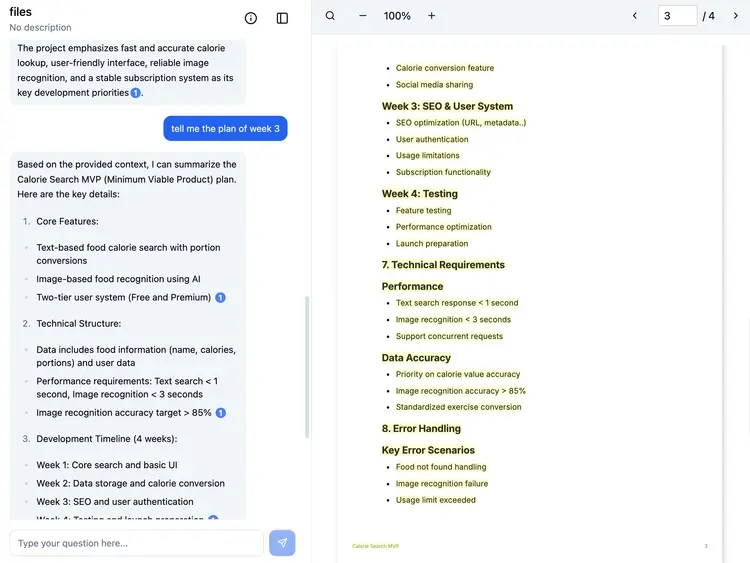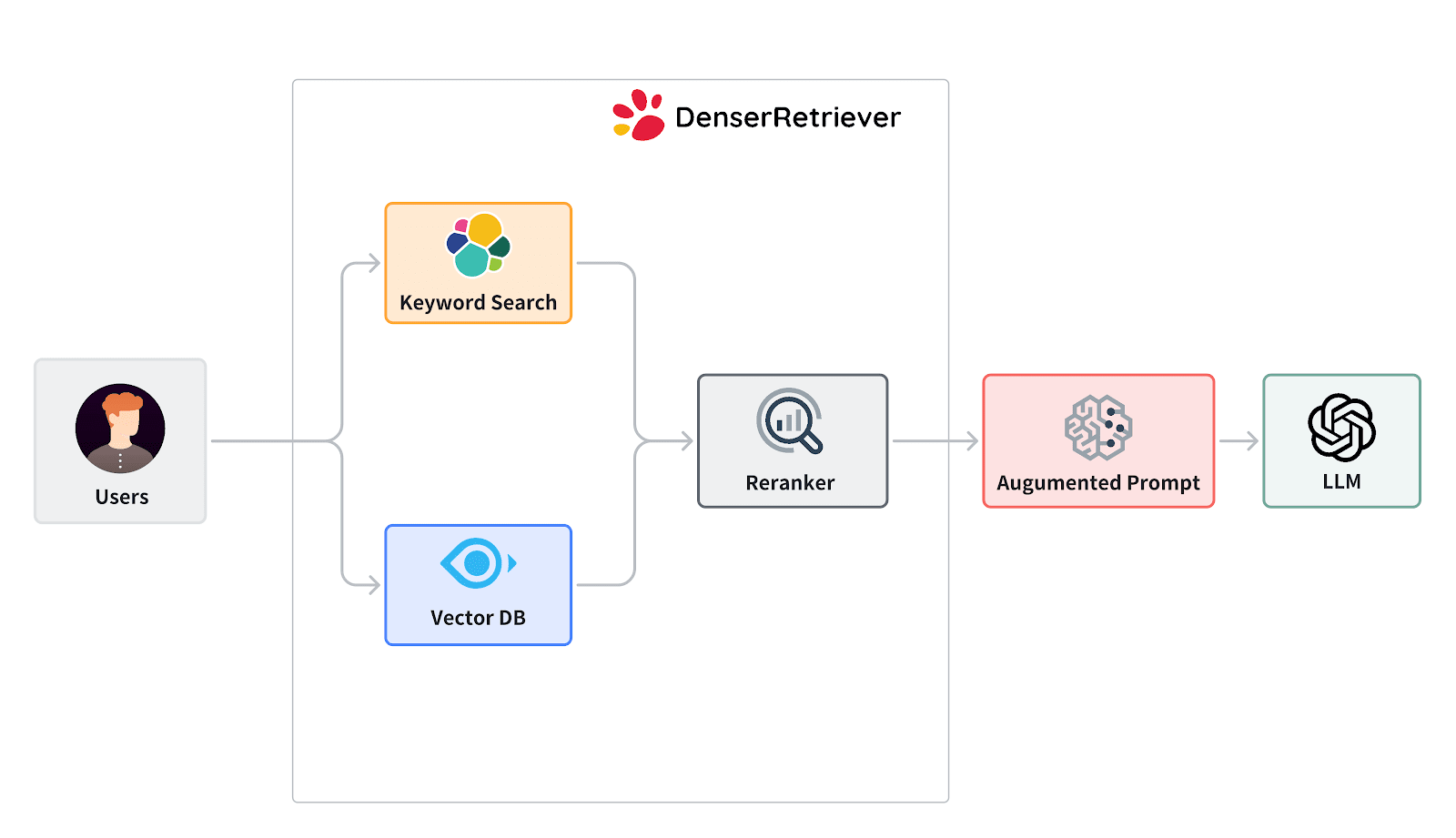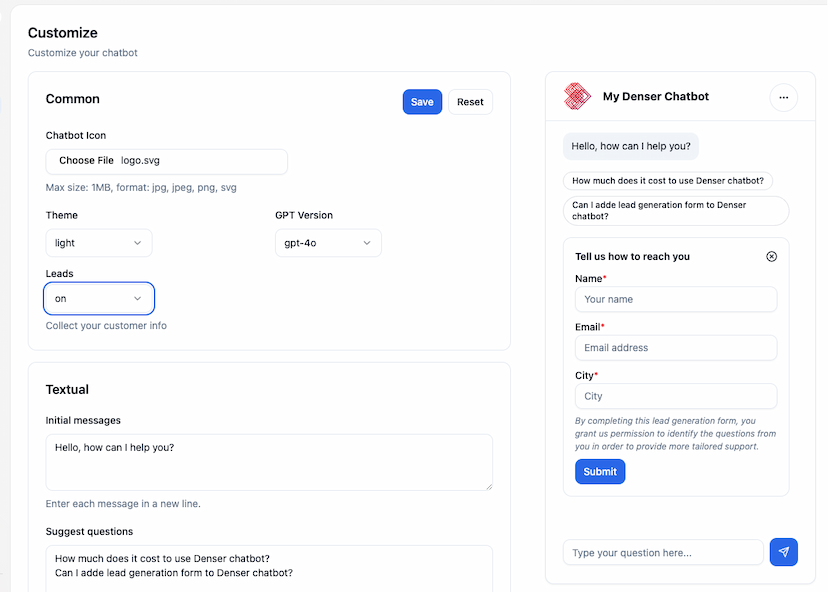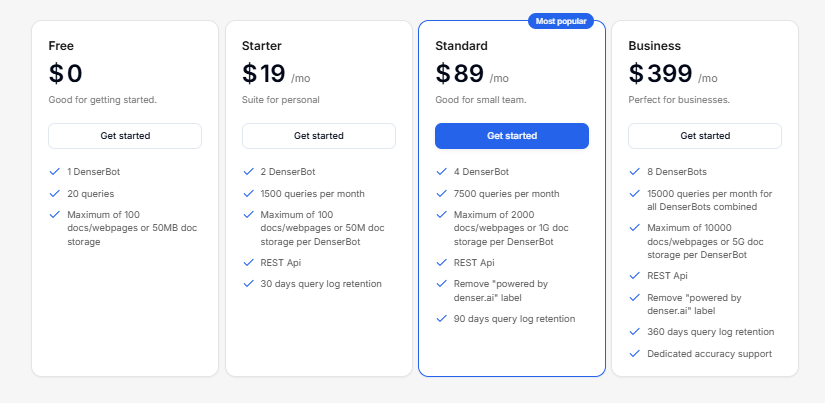
AI for IT Support: 6 Best Practices to Resolve Issues Faster

When your customers face technical issues, they expect help quickly—without waiting on hold or explaining their problem multiple times. Traditional support models can sometimes fall short, creating frustration for customers and pressure on your support team.
Artificial intelligence allows customers to be met with precise solutions almost instantly. AI systems recognize patterns in common issues, understand user language, and learn from past interactions.
Aside from providing faster support, AI brings a consistent experience that reflects your brand well and creates a more dependable customer experience.
In this article, we’ll look at AI technical support and discover the best AI tool to simplify customer assistance.
How AI Technical Support Differs From Traditional Support#
AI technical support is an automated tool powered by artificial intelligence that assists customers with technical questions and issues. These solutions, such as AI chatbots and virtual assistants, can handle a broad range of customer inquiries without human intervention.
Live technical support relies on support agents to address customer issues. But AI-driven support uses advanced technology to automate responses, speed up problem-solving, and provide assistance around the clock.
Let’s examine the differences between AI and traditional support methods and why many companies integrate AI into their customer service strategies.
24/7 Availability#
The traditional help desk is usually limited to specific hours, often leading to delays during off-hours.
AI’s round-the-clock support is especially beneficial for businesses with a global reach, as it can handle requests from different time zones seamlessly. Customers can get immediate answers without waiting for support hours to open.
Instant and Consistent Responses#
While customer service teams may need time to gather information or look up a solution, AI can immediately process and respond to customer queries.
AI in customer service provides consistent responses based on programmed information and verified data sources. Traditional support, on the other hand, depends on the agent’s individual experience and interpretation, which can lead to slight variations in responses.
Since AI systems follow pre-determined protocols, there is little to no room for errors that occasionally occur with human agents. Users receive reliable, consistent solutions every time, which builds trust in the support system.
Scalability During Peak Times#
Human-driven customer support teams often struggle with peak demand during product launches, seasonal sales, or technical outages.
During these times, support queues get longer, and response times slow down as agents work to keep up with the high volume of customer requests.
AI support systems, however, are designed to scale as needed. They can handle thousands of customer messages simultaneously without compromising response quality or speed. There’s no need to expand support teams during busy periods.
Cost-Effectiveness#
Traditional support requires ongoing investment in hiring, training, and managing a team of agents. While AI may have an initial setup or licensing cost, it operates with minimal upkeep once implemented.
This makes it a cost-effective solution in the long run, especially for companies with a high volume of support requests.
Faster Learning and Adaptation#
AI systems learn from interactions over time, which is something traditional support models cannot replicate. Through machine learning, AI support systems can analyze patterns in queries and solutions, becoming more accurate and efficient as they interact with more users.

AI systems update their responses based on data insights, ensuring they stay relevant as technology changes.
In contrast, traditional support relies on regular training sessions and updates, which can be time-consuming and less responsive to emerging issues.
Key Components of an Effective AI Technical Support System#
Creating an effective AI technical support system requires several components to provide comprehensive assistance. Each of these elements plays a unique role in enabling AI to handle a variety of technical issues:
AI-powered Chatbots and Virtual Assistants#
Chatbots and virtual assistants are the main touchpoints for AI technical support. They serve as the first line of interaction and guide users through common troubleshooting steps.
Chatbots are programmed with answers to frequently asked questions and common technical issues. For example, a chatbot might walk users through resetting passwords, checking connection settings, or diagnosing basic hardware issues.
AI-Driven Knowledge Base#
An AI-driven knowledge base is a critical resource that helps power the chatbot and virtual assistant’s responses.
Unlike traditional knowledge bases that require manual updates, an AI-driven knowledge base uses machine learning to expand and improve over time.
AI uses semantic search to understand the intent behind user queries, even when they aren’t phrased as expected. This ensures that users can quickly find relevant answers, even if they describe their issues differently.
Natural Language Processing (NLP)#
In technical support, NLP helps AI interpret customer questions accurately, even when phrased differently or containing slang, technical jargon, or abbreviations.
NLP also helps AI engage and respond to customer conversations naturally and pleasantly. It improves customer experiences as users don’t need to adjust their language to communicate with the system.
Sentiment Analysis#
Sentiment analysis is an AI feature that detects the emotional tone in a customer’s words. It helps AI respond appropriately based on the user’s mood, urgency, or level of frustration.
For instance, if the system detects irritation, it might respond more empathetically or expedite the issue to a live agent.
Machine Learning#
Machine learning algorithms analyze patterns in user queries, common issues, and successful solutions. As they gather more data, they help AI provide more accurate and relevant responses.
For example, if multiple users report slow software performance after an update, AI learns to suggest specific troubleshooting steps related to this problem.
As AI gathers data and learns from interactions, it becomes better at handling complex queries, reducing the need for human-agent intervention over time.
Seamless Integration With Human Support#
While AI is highly capable, some issues still require human intervention.
For an effective AI support system, a smooth transition process between AI and live agents is essential. This ensures that users can easily escalate their queries when AI reaches its limitations.
AI systems can provide background information to human agents when escalating, such as the user’s previous interactions, troubleshooting steps already tried, and any relevant context.
Common Use Cases for AI in Technical Support#
AI has a broad range of applications in technical support, from handling simple troubleshooting to more complex support tasks.
Here are some of the most common ways AI is being used in technical support:
Basic Troubleshooting for Software and Hardware Issues#
In a traditional setup, users with minor technical problems, such as software installation errors or connectivity issues, might experience delays as they wait for human assistance.
AI-powered support can instantly address these inquiries, providing a faster, more consistent experience.
AI chatbots and virtual assistants guide users through structured troubleshooting steps based on the specific issue. If users face an installation error, the AI assistant might prompt them to check system compatibility, update the software, or resolve common setup issues.
Automated support is especially valuable when problems are frequently encountered, as it allows immediate assistance.
Password Reset and Account Recovery#
Password resets and account recovery are the most frequently requested support tasks. Consider how helpful this can be for users who are locked out of their accounts due to a forgotten password or needing access after updating security settings.
The AI assistant makes the entire process faster and more streamlined by removing the need to wait for a support agent to respond.
Network and Connectivity Issues#
Network and connectivity problems are the most common issues for internet service providers, telecom companies, and smart device platforms. A slow connection or issues with a router can disrupt a user’s experience and lead to frustration.
AI technical support is especially valuable in this area, as it can diagnose and address these issues. Based on the user’s responses, the AI might suggest simple steps like restarting the router, checking the signal strength, or reconnecting devices.
In more advanced cases, AI systems can even run automated diagnostic tests to analyze network performance and provide tailored solutions based on real-time data.
Technical Support for E-Commerce and SaaS Platforms#
In e-commerce and SaaS (Software as a Service) environments, users often need support for various technical issues.
AI systems can provide immediate assistance by walking users through steps to verify payment information, troubleshoot browser compatibility, or address common error messages. This reduces the likelihood of cart abandonment due to technical difficulties.
For SaaS platforms, AI support can be especially helpful in assisting users with onboarding, product usage, and account management.
Device Compatibility and Setup Assistance#
Compatibility and setup issues are common with an increasing variety of devices. AI technical support plays an essential role here by simplifying device setup and troubleshooting compatibility issues.
AI-driven systems can quickly diagnose potential conflicts and guide users through setup steps. They might help users check if their device is compatible with specific software or provide instructions for syncing their device with others.
Product Usage Guidance and How-To Support#
Many companies use AI technical support to provide how-to guidance on using products or software features. This is especially common in industries where products have various features, and users may need assistance understanding or utilizing them fully.
How AI Boosts Technical Support for Specialized Industries#
AI is impacting technical support, especially in industries with specialized needs. Here’s how AI is transforming support in these sectors.
Healthcare IT#
Medical systems, patient records, and telehealth tools must handle sensitive information. AI-driven tools help healthcare providers manage these needs quickly and accurately.
AI can assist healthcare staff with electronic health record (EHR) systems or telemedicine tools. If a healthcare professional needs support with an EHR, an AI assistant can guide them without risking patient privacy.
AI support tools like HIPAA follow strict standards to protect data. Automating routine support requests helps reduce downtime so healthcare providers can focus more on patient care.
Financial Services#
A fintech chatbot has to ensure security while handling sensitive tasks, such as account recovery, transaction troubleshooting, and authentication issues.
If a customer faces issues accessing online banking, AI can assist with identity verification through secure methods, such as multi-factor authentication (MFA).
AI systems guide customers through login resets or address specific payment inquiries, maintaining high data security standards throughout.
E-Commerce#
AI-driven technical support improves the shopping experience by addressing issues in real time. AI assists with checkout errors, payment problems, and account access.
When a customer encounters an issue, an AI assistant can step in instantly to resolve it, helping prevent abandoned carts.
AI support in e-commerce also adds value by personalizing the shopping journey. For instance, it can recommend products based on browsing behavior or past purchases.
Telecommunications#
Telecom providers handle constant support requests, especially for connectivity issues and device setups. AI-driven support is ideal in this setting and can handle multiple requests.
If a customer experiences slow internet, an AI system can quickly analyze the issue. It might suggest solutions like restarting the router or checking for software updates.
If there’s a larger service outage, AI can notify users proactively. This reduces individual troubleshooting and keeps customers informed.
Top AI Technical Support Platforms in 2026#
Choosing the right AI technical support platform can significantly impact your customer service effectiveness. Here are the leading platforms designed for technical support automation:
Zendesk AI#
Zendesk offers AI-powered automation with guided knowledge base optimization. Its AI identifies content gaps and generates full articles from user-provided bullet points.
Best for: Large enterprises with extensive knowledge bases Key features: Automated ticket routing, sentiment analysis, knowledge base optimization Pricing: Starts at $55/agent/month for Suite Professional
Intercom Fin#
Intercom's AI-powered support tool analyzes conversation sentiment to provide satisfaction scores and alerts managers to potentially unhelpful agent replies.
Best for: SaaS companies with high-touch customer relationships Key features: Conversation sentiment analysis, automated responses, seamless human handoff Pricing: Custom pricing based on conversation volume
Denser.ai#
Denser.ai specializes in AI-powered technical support with deep document understanding and customizable chatbots. It's particularly strong for companies with complex technical documentation.
Best for: Technical products requiring accurate, source-cited responses Key features: Advanced retrieval technology, customizable AI chatbots, multi-language support, embeddable widgets Pricing: Free tier available, paid plans start at $29/month
Freshdesk AI (Freddy AI)#
Freshdesk's Freddy AI can predict customer intent, suggest relevant articles, and automate ticket assignments based on historical data.
Best for: Growing businesses needing scalable support automation Key features: Intent prediction, smart ticket routing, AI-powered chatbot Pricing: Starts at $15/agent/month
Help Scout AI#
Help Scout's AI focuses on summarizing long conversations, improving grammar, and creating FAQ pages from support interactions.
Best for: Small to mid-sized businesses prioritizing customer-centric support Key features: Conversation summarization, automated responses, knowledge base creation Pricing: Starts at $25/user/month
Best Practices for Implementing AI Technical Support#
Companies should follow certain best practices to get the most out of AI support. These practices make sure the AI system is well-integrated, effective, and aligned with user needs.
1. Choose the Right AI Tool#
Some AI tools are best suited for handling basic inquiries, while others can manage more complex issues. When choosing an AI tool, consider the types of support requests your business receives.
If your users frequently need help with simple troubleshooting, a chatbot with basic troubleshooting capabilities might be sufficient.
However, if your business needs support for more complex issues, look for a customer service AI system that can integrate with your existing tools and escalate cases to human agents when required.
If you’re looking for an adaptable AI chatbot solution for technical support, Denser.ai offers a comprehensive set of features. It comes with unique features necessary for technical support and a deep understanding of technical issues customers face.
With this customer service software, you gain access to customizable AI chatbots that provide consistent customer service and transform user inquiries into opportunities for engagement.

The platform's Denser Retriever technology can swiftly search through huge data sources and documents to deliver accurate, relevant responses, ensuring users receive trustworthy information. This advanced retrieval capability reduces the risk of AI-generated errors.
2. Integrate AI With Existing Support Systems#
Your AI system should work alongside human agents and existing support tools to create a seamless support experience. Integration helps avoid gaps in service and makes sure users get the help they need, even if their inquiry goes beyond the AI's capabilities.
Denser.ai simplifies integration and supports embeddable widgets like Slack and Zapier. It fits into your existing systems and allows you to deploy AI-driven support without a complex setup.

Its lead generation tools add another dimension and allow businesses to capture and qualify leads through AI-powered conversations. It directly turns customer interactions into potential sales.
When AI reaches its limit on a support request, it should escalate the issue to a human agent without interrupting the user’s experience. This handoff gives agents the necessary context from the AI interaction without needing the user to repeat information.
3. Train AI With Relevant Data#
AI performs best when it is trained on relevant and comprehensive data. The AI system should learn from actual user queries and past support cases to understand your customers' specific needs.
Regularly update and train AI with new data as product updates and support needs evolve. This ensures the AI provides accurate, up-to-date responses.
For example, feed the AI system with information about new features or changes if your product undergoes a significant update. This helps AI provide better assistance without needing to escalate every query.
4. Monitor AI Performance and User Feedback#
You should regularly monitor your AI system’s performance to understand how well it’s meeting user needs. Track metrics such as response accuracy, customer satisfaction ratings, and the rate of successful resolutions.
Pay attention to user feedback, as this can provide insights into areas where AI may need adjustments.
Users frequently escalating similar issues might indicate a gap in the AI’s training or functionality, and addressing these gaps can help the AI become more effective over time.
5. Maintain Data Privacy and Security Standards#
AI support systems often handle sensitive information, especially in the healthcare, finance, and e-commerce industries.
To protect user data, follow data privacy regulations, and implement security features within the AI system.
You should also make sure the AI-powered customer service system uses encrypted channels, secure authentication methods, and limited data storage where needed. This builds trust with users and aligns with privacy laws.
6. Start Small and Scale Gradually#
When implementing AI in technical support, start with a pilot program or focus on specific areas.
Starting small lets your customer service professional see how AI performs in a controlled setting. You can address any challenges or refine the AI’s responses before expanding it across more areas.
You might consider rolling out AI for password resets, account recovery, or frequently asked questions. Once AI works in these areas, you can gradually extend its reach to other support functions.
Measuring AI Technical Support Success#
To ensure your AI technical support system delivers value, track these key performance indicators:
Response Time Metrics#
- First Response Time (FRT): How quickly the AI responds to initial queries
- Average Resolution Time (ART): Time from first contact to issue resolution
- Target: AI should respond in under 5 seconds for simple queries
Accuracy and Quality Metrics#
- Resolution Rate: Percentage of issues fully resolved by AI without human intervention
- Customer Satisfaction Score (CSAT): User ratings after AI interactions
- Target: 70%+ resolution rate, 4+ stars CSAT
Efficiency Metrics#
- Ticket Deflection Rate: Percentage of inquiries handled by AI vs. escalated to humans
- Cost Per Contact: Average cost of AI-handled vs. human-handled interactions
- Agent Productivity: Time saved by automating routine queries
- Target: 40-60% ticket deflection for mature implementations
Learning and Improvement Metrics#
- Knowledge Gap Identification: Questions AI couldn't answer
- Training Data Quality: Accuracy of source documents
- Model Performance: Improvement over time as AI learns
User Engagement Metrics#
- Adoption Rate: Percentage of users choosing AI over other support channels
- Conversation Completion Rate: Users who complete their AI interaction vs. abandoning
- Return User Rate: Customers who use AI support multiple times
Common Challenges and Solutions#
While AI technical support offers many benefits, implementation comes with challenges. Here's how to address them:
Challenge 1: Low User Trust in AI#
Problem: Users prefer human agents and don't trust AI responses.
Solutions:
- Be transparent that users are interacting with AI
- Provide source citations for all answers
- Make human escalation easy and prominent
- Show AI accuracy metrics to build confidence
Challenge 2: Handling Complex Technical Issues#
Problem: AI struggles with multi-step troubleshooting or unique edge cases.
Solutions:
- Implement smart escalation rules based on complexity
- Use AI to gather initial information before human handoff
- Continuously train AI on resolved complex cases
- Combine AI with decision tree workflows for structured troubleshooting
Challenge 3: Keeping Knowledge Base Current#
Problem: AI provides outdated information as products and policies change.
Solutions:
- Set up automatic web crawling for documentation updates
- Create alerts when AI can't answer frequent new questions
- Assign ownership of knowledge base sections to specific teams
- Schedule regular content audits and updates
Challenge 4: Integration with Legacy Systems#
Problem: Older technical support systems don't easily connect with modern AI tools.
Solutions:
- Use API-based platforms like Denser.ai that offer flexible integration
- Start with standalone AI chatbot before deeper integration
- Implement middleware to bridge legacy and modern systems
- Gradually migrate to AI-friendly support infrastructure
Build Trust With Consistent, AI-Powered Responses#
Your technical support system should empower your business, not slow it down.
With customers expecting always-available assistance, depending solely on direct human support can leave you struggling to keep up.
Denser's AI-powered chatbots provide around-the-clock support, solving common issues and making every support interaction smoother.
You can deploy an AI-driven support assistant that integrates with your existing tools. It can automate responses, analyze user queries, improve agent productivity, and help your team work better.
Now is the time to transform your technical support into a powerful advantage. Denser.ai helps you provide faster and more efficient customer service without overwhelming your team.

Try Denser for free or schedule a product demo today!
FAQs About AI Technical Support#
How is AI used in technical support?#
AI helps businesses improve technical support by automating responses, assisting agents, and handling common issues. Many customer support platforms use AI customer support software to answer FAQs, guide users through troubleshooting, and speed up resolutions.
Unlike traditional customer service, AI can analyze large amounts of data to predict problems and offer quick solutions.
Can AI do tech support?#
AI can handle many tech support tasks, such as diagnosing issues, providing step-by-step solutions, and automating responses. AI-powered chatbots improve agent productivity by reducing repetitive tasks and allowing human agents to focus on complex cases.
However, while AI helps with automation, you still need human support for critical or sensitive issues.
Is ChatGPT still the best AI?#
ChatGPT is a popular AI customer support software, but whether it’s the best depends on your needs. It offers natural language processing, but some customer support platforms provide more advanced features like integration with ticketing systems and real-time learning.
If you're looking to improve, technical support should explore AI solutions that improve agent productivity and automate common tasks.
What is AI in technical support?#
AI in technical support means using artificial intelligence to improve customer service, automate issue resolution, and speed up workflows. Many customer support platforms use AI to answer user queries, assist your agents, and speed up response times.
